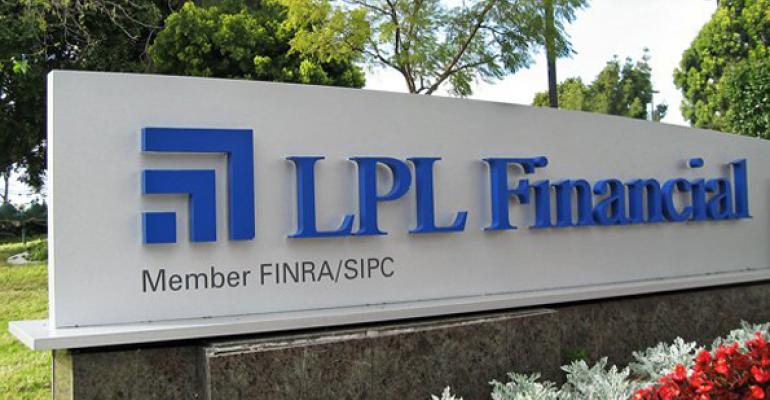LPL Financial agreed to a $6.5 million fine for failing to properly retain records, conduct mandatory fingerprinting and for the lax supervision of consolidated reports, according to a FINRA letter of acceptance, waiver and consent signed on Dec. 30.
In the letter, the regulatory agency said the lapses resulted in the deletion of more than 1.5 million customer communications by a third-party data vendor, and meant a former representative could exploit the shortfalls to run a Ponzi scheme against several LPL clients.
“Federal securities laws and regulations and FINRA rules require broker-dealers to maintain certain broker-dealer and customer records in a form and manner designed to prevent their loss, alteration, or deletion,” the letter read. “Protecting the integrity of these required records is an essential obligation for broker-dealers because review of such records is the primary means by which regulators protect investors and examine for misconduct.”
The lapses started in January 2014, FINRA said. Between 2014 and September 2019, LPL failed to establish systems that would help them comply with record-keeping requirements, and did not detail how branch managers, who were responsible for that compliance, should monitor how their offices were using local or shared drives as storage locations.
“We take our compliance obligations seriously, and have been proactive in identifying, reporting and remediating these issues,” an LPL spokesperson said. “We’ve made significant investments to strengthen our capabilities related to this important work.”
In August 2017, FINRA asked LPL to supply certain customer letters that it couldn’t find. LPL reached out to an unnamed third-party data vendor firm it partnered with (“Vendor A”) to locate them, but the firm informed LPL that about 500,000 customer communications (including the letters in question) had been deleted because they’d been stored in a location where records were automatically deleted after one year’s time.
“Subsequently, LPL did not take reasonable steps to verify that Vendor A migrated the other documents remaining in the temporary storage location to an appropriate location,” the letter read. “Therefore, on October 26, 2018, Vendor A discovered that the migration did not occur and that approximately one million additional LPL customer communications had been deleted.”
Additionally, FINRA rules mandate that all “partners, directors, officers and employees of broker-dealers, unless they are exempt,” be fingerprinted to check whether they are subject to disqualification. But since 2014, LPL failed to obtain fingerprints for more than 7,000 nonregistered associated individuals; LPL self-reported the lapse. Most of the individuals in question were tech professionals working outside the United States.
In one situation in 2017, LPL actually obtained fingerprints for one individual and sent them to FINRA, only to find out that this individual had previously been convicted of a misdemeanor for the possession of a forged instrument and was subject to disqualification. But the person in question continued with the firm until September 2019. Bill Singer, a securities attorney and author of the BrokeandBroker.com blog, said this failure was of particular concern and that the lack of adequate fingerprinting was a “significant lapse” for the independent broker/dealer.
“One of the big pains of becoming a stockbroker was after passing exams you had to get fingerprinted,” he said. “It’s one of those things that doesn’t seem like a big deal, but it is, because it’s a kind of gatekeeping function.”
FINRA also found that LPL had failed to establish a system to supervise consolidated reports, which contain information about a customer’s financial holdings, including those assets not held at the firm. According to the regulatory agency, LPL did not review draft consolidated reports, and didn’t have a way to supervise when uncompleted reports were inadvertently sent to customers, which reportedly had happened on numerous occasions since 2015.
LPL’s supervisory failures also gave one former registered rep the opportunity to concoct consolidated reports with fictitious assets to a number of different LPL customers, according to FINRA. The representative, who is named in the letter as “JTB,” converted at least $1 million in customer funds through his Ponzi scheme, the letter stated. FINRA noted that the unnamed representative worked at LPL from February 2018 through May 2019, which closely mirrors the BrokerCheck profile of James T. Booth, who was sentenced to 42 months in prison last November for defrauding investors of nearly $5 million.
Though LPL was not required to admit or deny the findings, the firm agreed to retain a third-party consultant to conduct a review of the compliance issues raised in the letter, in addition to the censure and a $6.5 million fine.





